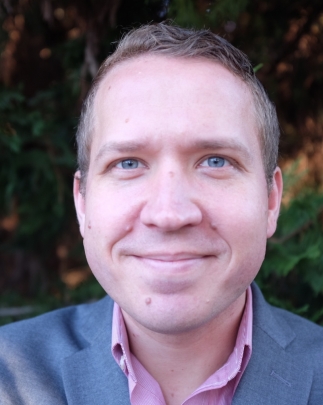Meet Assistant Professor of Politics Travis Curtice, PhD
September 10, 2021
Travis Curtice, PhD, is an assistant professor in the Department of Politics. Prior to coming to Drexel, he held fellowships with the Dickey Center for International Understanding at Dartmouth College, the U.S. Institute for Peace and the Democracy Program at the Carter Center. Curtice completed his Ph.D. in Political Science from Emory University in 2020, receiving the Pursuit of Excellence in Political Science Award.

Degree: PhD, Political Science, Emory University
Research Interests: The politics of policing and political violence in non-democratic societies.
Hometown: I was born in Denver, Colorado but raised too far away from the Rockies.
What did you do before coming to Drexel?
Before coming to Drexel, I spent a year at Dartmouth College as the Dickey Center U.S. Foreign Policy and International Security Fellow and Niehaus Fellow. I completed my PhD in Political Science at Emory University in 2020, receiving the 2019-2020 Pursuit of Excellence in Political Science Award. While at Emory I was the 2019-2020 Peace Scholar Predoctoral Fellow at the U.S. Institute of Peace and a 2017-2018 Predoctoral Fellow at the Institute of Developing Nations and the Carter Center. In 2017, I also worked for the Carter Center’s Democracy Program consulting on their international election observation missions in Kenya, Liberia and Nepal.
What is your favorite thing about Philadelphia?
One of the things I’ve really enjoyed is exploring the Wissahickon Gorge and all the hiking in the city. Another thing is the hospitality of the city. Moving and exploring a city in the middle of a pandemic is hard, but our neighbors have been so very welcoming.
What have you been working on recently?
I’m turning my dissertation into a book. In it, I examine the politics of policing in multi-ethnic societies. Specifically, I explore how political violence by police officers undermines the governments’ ability to provide safety and security for communities.
What would students be surprised to learn about you?
My teaching philosophy as a professor developed in the most unlikely of places: quitting university to spend a few years working in a cabinet factory and rock climbing in the Ozark Mountains. Climbing and woodworking are activities where practice might not make perfect, but it does make progress. As I improved as a climber, I started teaching others to climb. One of the most difficult lessons to teach new climbers is that to grow stronger as a climber you must be willing to fail; climbing involves falling.
When teaching rock climbing, I would try to impart two lessons. First, it is important to envision a goal and to keep one’s eyes on it. Second, it is important to remember that the goal can be reached only through persistent step-by-step effort, even though that work often involves failure. When I returned to university, completed my degree and started teaching in higher education at the University of Arkansas, these lessons continued to shape my approach to teaching. Since then, I have taught a range of courses in academic and applied settings that span the traditional subfields of International Relations, Comparative Politics and Research Methods.
What inspires you?
Mountains. Maybe it’s because I was born in Colorado, but mountains and exploring the outdoors in general inspire me.
What was an impactful moment from your own college career?
I was lucky to be able to travel throughout my college career. After my first year in college, for one example, I taught English to grade students in Zenica, Bosnia. I never could have imagined how much seeing and experiencing life outside of the United States would change my perspective and the way I engaged the world moving forward.